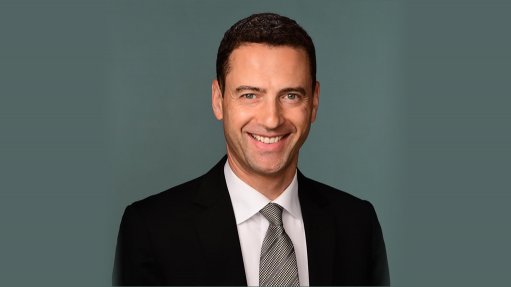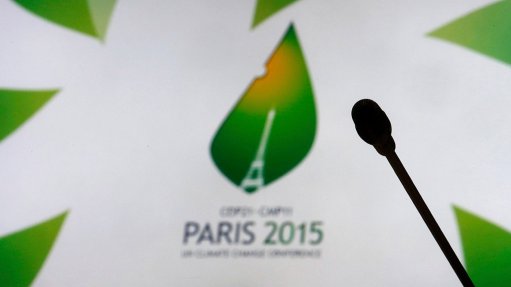Nothing new in Customs
My mother constantly reminds me that there is nothing new under the sun. When, as a small boy, she first told me this, I was very sceptical, reasoning that there had been no motor vehicles before January 29, 1886, for example. Truth be told, I did not know the exact date at the time but, still, it was when Carl Benz applied for a patent for his “vehicle powered by a gas engine”, which many regard as the motor vehicle’s birth certificate.
As for the context of “nothing new under the sun”, it’s written in Ecclesiastes 1 verse 9: “What has been will be again, what has been done will be done again; there is nothing new under the sun.”
When I am asked to speak on Customs issues, I never tire of citing quotes, and challenging the audience to think about how innovative Customs provisions really are. Take the example of ‘duty drawbacks’; on the International Trade Administration Commission of South Africa website, under ‘Tariff Investigations’, you will find a reference to ‘drawback provisions’, and, scrolling through the information, it’s stated: “Drawbacks form a key pillar of certain industrial development programmes, such as the Automotive Production and Development Programme (APDP) for motor vehicles.” Moreover, the South African Revenue Service website affirms: “The APDP is a production incentive scheme for the motor industry aimed at promoting production volumes in the specified motor vehicle industry, promoting added value in the automotive component industry [and] thus creating employment across the automotive value chain.”
If you consider ‘drawbacks’ to be innovative, and recent, then you might not have read a book titled An Inquiry into the Nature and Causes of the Wealth of Nations, generally referred to as The Wealth of Nations, which is the magnum opus of the economist Adam Smith. If the author’s name does not ring a bell, Smith is widely considered to be ‘the father of economics’. In Chapter IV of Book IV, you will find the quite familiar title ‘Of Drawbacks’, the principle of which is “to allow the merchant to draw back upon exportation either the whole or a part of whatever excise duty or inland duty is imposed upon the domestic industry”.
This brings me to the ‘Simplification of Customs Formalities’, which is all the rage at present. If only it was thought of before you, but then again the current thought leaders are an innovative bunch, are they not? In case you missed another centenary, on November 3, 1923, at the League of Nations, the International Convention Relating to the Simplification of Customs Formalities was registered with the secretariat, and entered into force just over a year later, on November 27, 1924. If you are intent on taking a trip down memory lane, simply employ your search engine to locate ‘United Nations Treaty Collection’.
So, just how familiar are you with the proposed Customs simplifications? Here are some highlights. Article 1: “commercial relations shall not be hindered by excessive, unnecessary or arbitrary Customs or other similar formalities”; Article 2: “the contracting States undertake to observe strictly the principle of equitable treatment in respect of Customs or other similar regulations or procedure”; Article 3: “contracting States undertake to adopt and apply, as soon as circumstances permit, all measures calculated to reduce such prohibitions and restrictions to the smallest number”; Article 4: “the contracting States shall publish promptly all regulations relating to Customs and similar formalities and all modifications therein”; and Article 5: “every contracting State whose tariff has been modified by successive additions and alterations affecting a considerable number of articles shall publish a complete statement, in an easily accessible form, of all the duties levied as a result of all the measures in force”.
These are but a few of the convention’s articles, which you might want to read in their entirety. What is evident, and indisputable, is that what was agreed to 100 years ago is now considered innovative. If only they knew that it was not new.
Comments
Press Office
Announcements
What's On
Subscribe to improve your user experience...
Option 1 (equivalent of R125 a month):
Receive a weekly copy of Creamer Media's Engineering News & Mining Weekly magazine
(print copy for those in South Africa and e-magazine for those outside of South Africa)
Receive daily email newsletters
Access to full search results
Access archive of magazine back copies
Access to Projects in Progress
Access to ONE Research Report of your choice in PDF format
Option 2 (equivalent of R375 a month):
All benefits from Option 1
PLUS
Access to Creamer Media's Research Channel Africa for ALL Research Reports, in PDF format, on various industrial and mining sectors
including Electricity; Water; Energy Transition; Hydrogen; Roads, Rail and Ports; Coal; Gold; Platinum; Battery Metals; etc.
Already a subscriber?
Forgotten your password?
Receive weekly copy of Creamer Media's Engineering News & Mining Weekly magazine (print copy for those in South Africa and e-magazine for those outside of South Africa)
➕
Recieve daily email newsletters
➕
Access to full search results
➕
Access archive of magazine back copies
➕
Access to Projects in Progress
➕
Access to ONE Research Report of your choice in PDF format
RESEARCH CHANNEL AFRICA
R4500 (equivalent of R375 a month)
SUBSCRIBEAll benefits from Option 1
➕
Access to Creamer Media's Research Channel Africa for ALL Research Reports on various industrial and mining sectors, in PDF format, including on:
Electricity
➕
Water
➕
Energy Transition
➕
Hydrogen
➕
Roads, Rail and Ports
➕
Coal
➕
Gold
➕
Platinum
➕
Battery Metals
➕
etc.
Receive all benefits from Option 1 or Option 2 delivered to numerous people at your company
➕
Multiple User names and Passwords for simultaneous log-ins
➕
Intranet integration access to all in your organisation


















